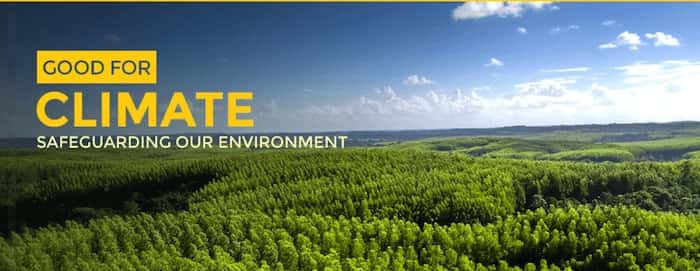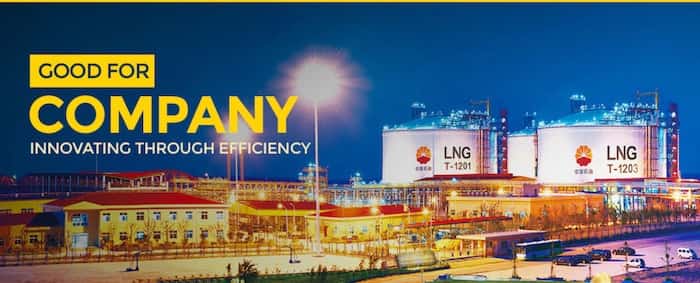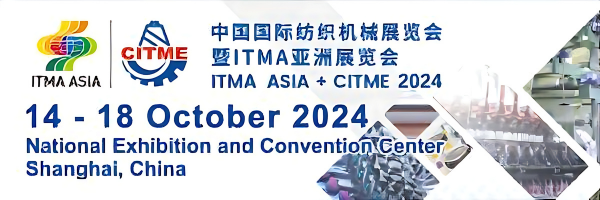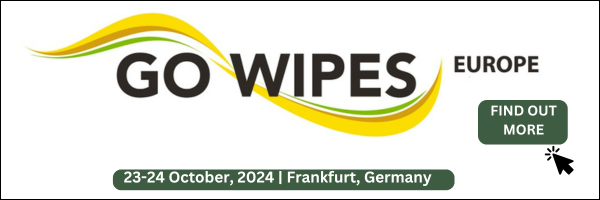Next-Generation Textile Fibre
- The new commitment is an important element in the group’s strategic business direction towards closed-loop, circular and climate-positive cellulosic fibres
- The investment will focus on alternative cellulose feedstock and clean manufacturing solutions deployable at industrial scale
- Comprehensive cooperation with key industry partners will promote progress towards broader goals
Leading resource-based manufacturing group Royal Golden Eagle (RGE) has announced plans to invest US$200 million over the next 10 years into cellulosic textile fibre research and development.
The investment revealed ahead of the Textile Exchange Sustainability Conference in Vancouver, will support solutions in alternative cellulose or plant-based feedstock and closed-loop manufacturing. The target allocation for the investment is 70:20:10 in three areas, respectively: scaling up proven clean technology in Textile fibre manufacturing, bringing pilot-scale production to commercial scale, and R&D in emerging frontier solutions.
Bey Soo Khiang, Vice Chairman of RGE, said: “This is a strategic business growth area for RGE. Our integrated portfolio of companies across pulp, fibre and yarn production puts us in a unique upstream position in the textile value chain to realise commercial scale and affordable solutions that support downstream manufacturers and brands. We aspire not just to be the largest viscose producer but also to be a leader in sustainable textile fibre production through innovation.”
Through its business groups Sateri in China and Asia Pacific Rayon (APR) in Indonesia, Singapore-based RGE is the world’s largest viscose producer with total annual production capacity at 1.4 million tonnes.
Sateri and APR source wood-based dissolving pulp from sustainably managed renewable plantations in Indonesia and Brazil through RGE-managed companies, APRIL and Bracell.
Allen Zhang, President of Sateri, said: “Sateri is proud to be part of this long-term commitment that RGE has made. We look forward to supporting and scaling up solutions that can help Sateri produce even more sustainably and deliver high quality and affordable products to our customers”. Ben Poon, Deputy Head of APR, added, “This commitment responds to two pressing environmental challenges facing the textile industry: increase in demand for both synthetic and natural fibres for textile production and increase in textile waste.
Recycled textile waste as a feedstock tackles both issues simultaneously.”
Through partnerships with innovators and in-house research and development, several initiatives are already underway. In August 2019, RGE invested in Finnish start-up Infinite Fiber Company (IFC) to scale up its technology. A 500-ton pre-commercial plant in Finland and customer training centre will be ready by early 2020. “Infinite Fiber technology fits perfectly in RGE’s shift for using alternative feedstocks. Our ability to use a diverse range of feedstock, especially mixed textile fibres, is a
a technological breakthrough, and as RGE’s strategic partner we look forward to supporting their change,” said Petri Alava, CEO of IFC.
In May this year, an MoU was signed with re:newcell for technical cooperation and trials on the production of viscose using recycled cotton, with the aim of industrial-scale production by 2025. “We are very happy about adding Sateri, a world-leading textile fibre producer, to our group of validation partners for scaling up circular raw materials for fashion. Cooperation between many actors in the value chain is crucial to achieving significant positive impact in this industry,” said Patrik Lundström, CEO at re:newcell.
RGE has also commenced partnership discussions with Fashion for Good, whose Innovation Platform is, at the core of its efforts, focused on sparking and scaling technologies and business models that have the greatest potential to transform the fashion industry. “As the world’s largest viscose producer, RGE is uniquely positioned to implement and scale our innovator’s solutions across its global portfolio.
There is a huge opportunity to innovate in the area of next-generation textile fibre solutions. The potential for change is enormous,” said Katrin Ley, Managing Director, Fashion for Good. In addition, RGE’s in-house R&D teams conduct research on alternative cellulosic feedstock, such as agricultural waste and recycled cotton, as well as closed-loop manufacturing for viscose production, in collaboration with leading universities and global R&D centres.
Sally Uren, Chief Executive of Forum for the Future, said: “Next-generation solutions have real potential to make a significant contribution to the realisation of a circular economy for fashion and the broader textile sector. We hear far and wide that people want ‘systems change, not climate change’. Allocating investment to accelerate the scaling of solutions into the mainstream is an important lever to pull for systems change. We need more such commitments of investment to help today’s niche sustainability innovators become the number one partners of choice.”
ABOUT RGE
RGE Pte Ltd manages a group of resource-based manufacturing companies with global operations. Our work ranges from the upstream, comprising sustainable resource development and harvesting, to downstream, where our companies create diverse value-added products for the global market. Our commitment to sustainable development underpins our operations, as we strive towards what is good for the community, good for the country, good for climate, good for the customer, and good for company.
RGE was founded in 1973. The assets held by RGE companies today exceed US$20 billion. With more than 60,000 employees, we have operations in Indonesia, China, Brazil, Spain and Canada and continue to expand to engage newer markets and communities.
Join Us Now
Join 80.000 Middle East and North Africa Textile Professionals who get Kohan Textile Journal’s FREE Newsletter…
Subscribe Newsletter




















